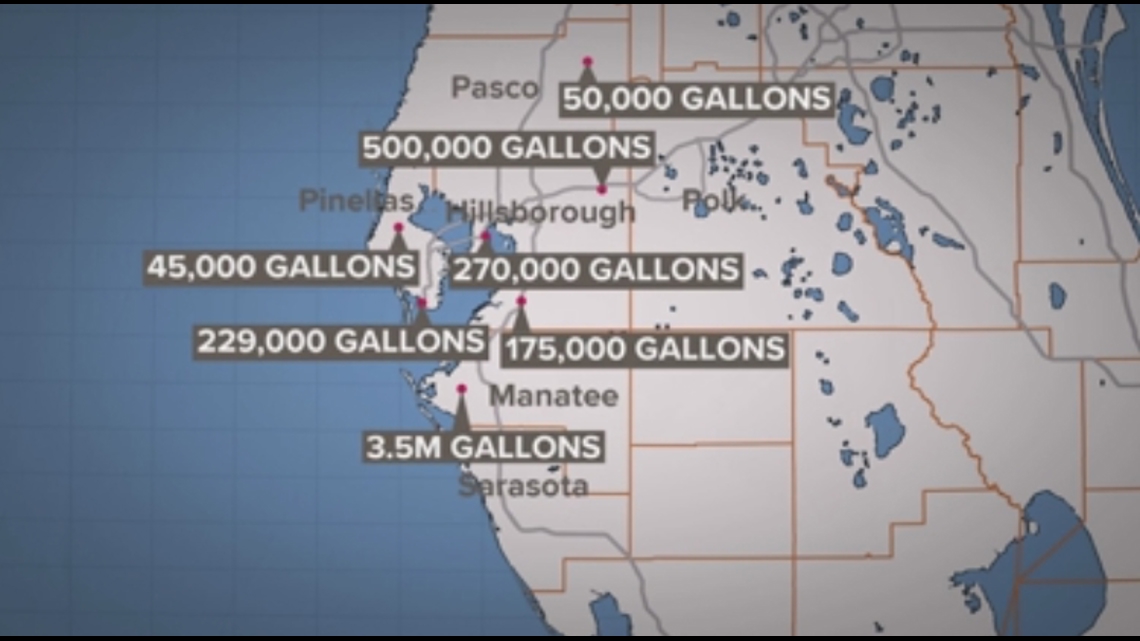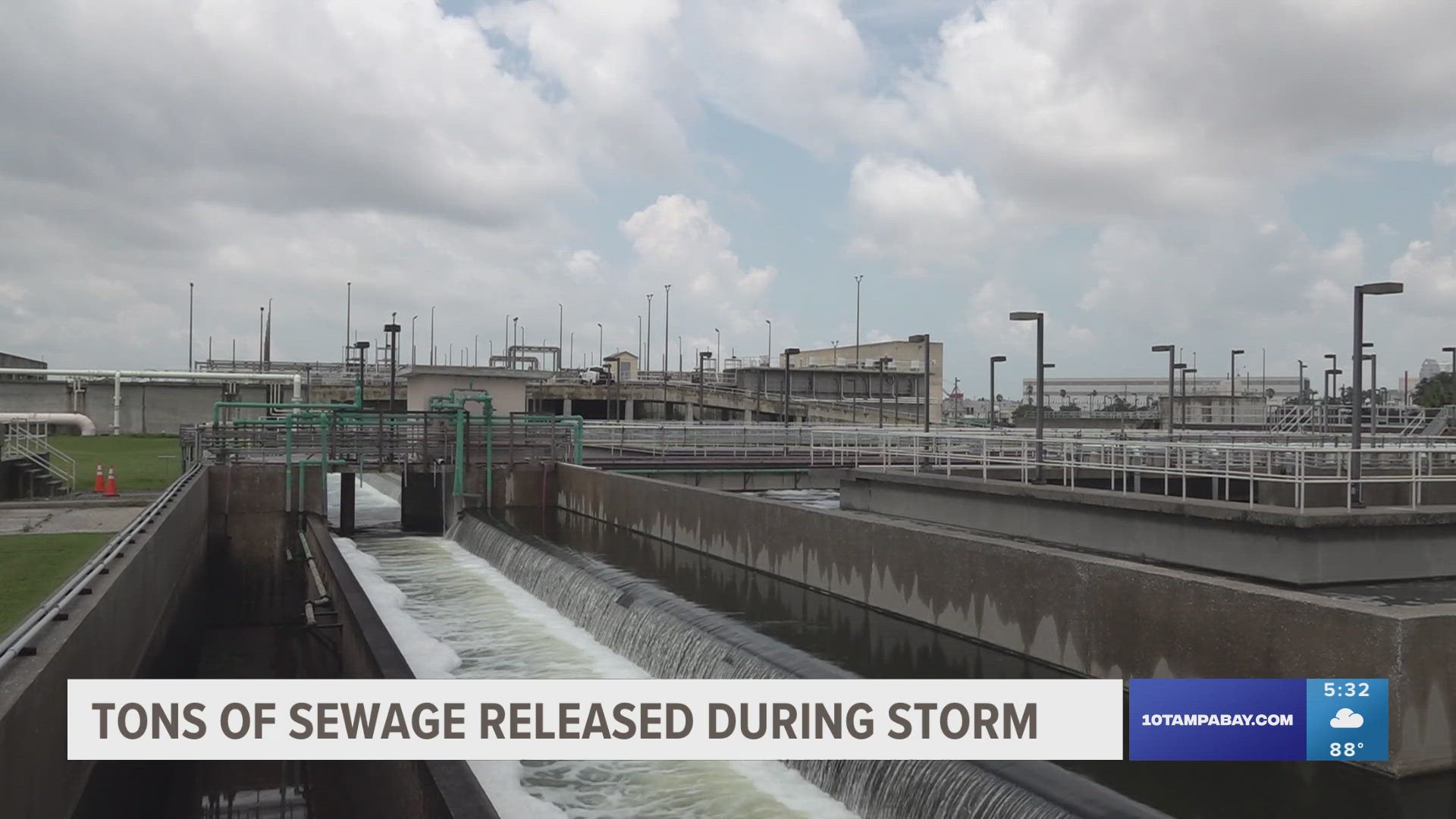TAMPA, Fla. — Rain from Hurricane Debby over-loaded sewage systems and treatment plants across the greater Tampa Bay area.
10 Tampa Bay reviewed reports local officials sent the state. They reveal millions of gallons of raw and partially treated sewage have been released during the storm, enough water to fill more than 10 Olympic-sized pools.
Much of it flowed into rivers, creeks, and even Tampa Bay.
These are just some of the biggest we've identified so far, as state environmental regulators investigate each incident:


Eric Weiss, the chief engineer for the Tampa Wastewater Department, explained how this happens.
"Stormwater and rainwater and even groundwater come into the wastewater pipes, takes up its capacity and it results in a wastewater overflow," he said.
Weiss said in this situation, with the deluge of rain, it was nearly impossible to clean up the mess in real time.
"We have big trucks, sewer cleanup trucks, that can vacuum it up during normal day-to-day overflow. Here, it was hard because it just pushed out immediately into the storm drains," Weiss explained.
On Coachman Avenue in Tampa, the city says a sewer overflowed, releasing 270,000 gallons of wastewater into this street, which rushed down two storm drains that lead to the bay.
It was far from an isolated incident.
In Pinellas County, a Largo lift station overflowed, releasing nearly 50,000 gallons of wastewater.
In Manatee County, the city of Bradenton said it was forced to bypass 3.5 million gallons of partially treated wastewater that flowed into the Manatee River.
There were many more similar incidents. Florida Department of Environmental Protection said the information they're receiving is evolving rapidly, and more details should be available in the coming days.
The best place to keep track of what has been submitted to date is through DEP's Public Notice of Pollution Portal. At that link, you can download a spreadsheet that you can sort to identify spills by date and/or county.
Meanwhile, Weiss said this situation underscores the need to strengthen our area's wastewater infrastructure. Right now, Tampa is five years into a 20-year $1.4 billion project to make such improvements.
"We're rehabilitating those pipes to stop the non-waste water from getting into those pipes to begin with. And I have no doubt that without the 200 miles we've rehabilitated already, it could have been worse," Weiss said.
The city of Tampa says to continue to look for pollution notices in areas you're planning to swim or fish in the coming days.
10 Tampa Bay's Josh Sidorowicz contributed to this reporting.

